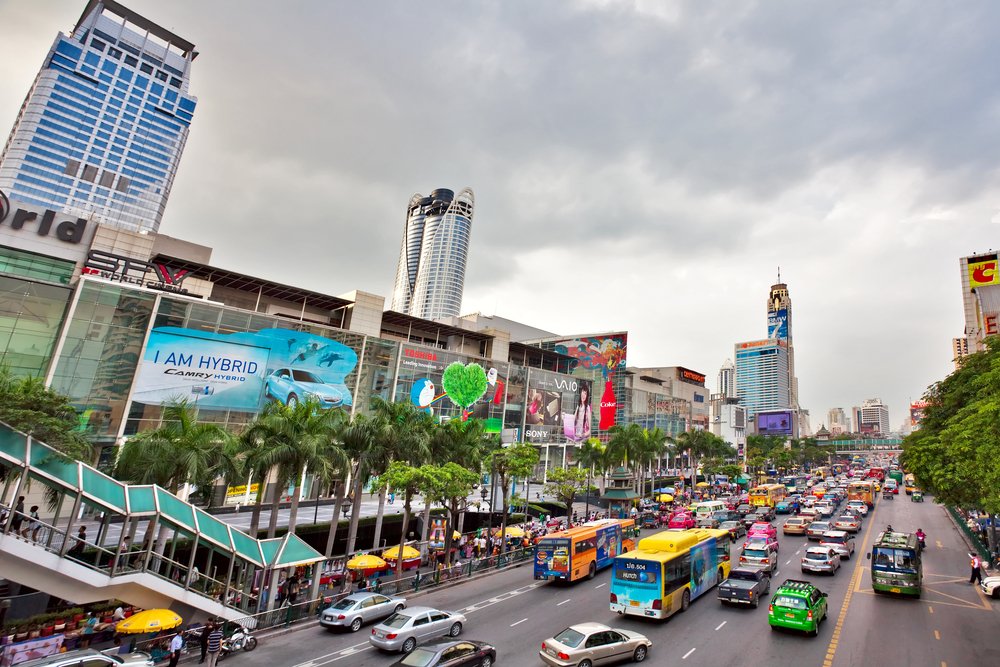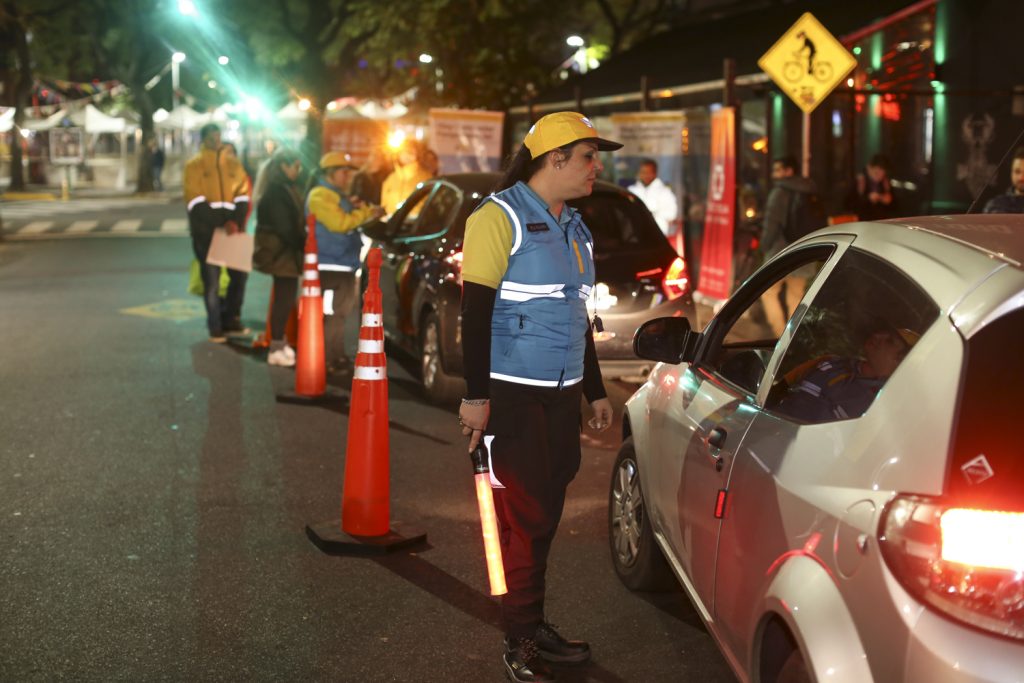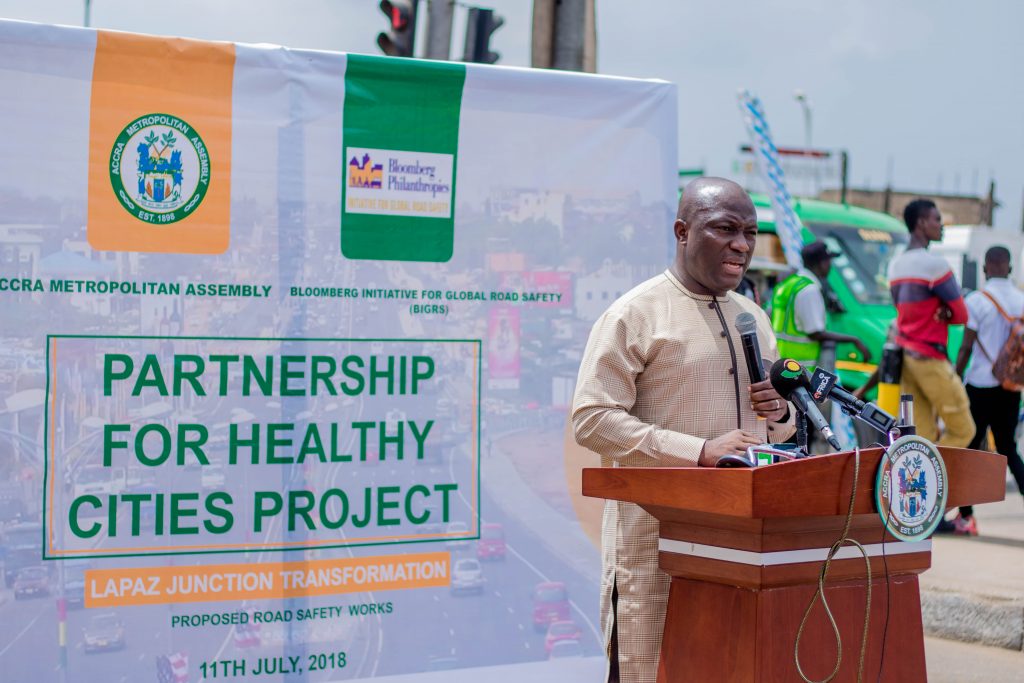
Ulaanbaatar launched a new seat-belt PSA as part of its Partnership initiative.
Cities in the Partnership for Healthy Cities have enjoyed a string of road safety successes in recent weeks, with Bangkok, Thailand; Accra, Ghana; Buenos Aires, Argentina; and Ulaanbaatar, Mongolia taking big steps forward on their Partnership initiatives.
Through the Partnership, these four cities are implementing proven methods for preventing road injuries and deaths, whether slowing down traffic, protecting pedestrians, getting drivers to wear seat-belts, or convincing them to refrain from getting behind the wheel after drinking.
Bangkok recently became the first of the Partnership’s 54 cities to fully achieve its overall objective by completing the installation of speed cameras in high-crash-risk areas of the city and sharing a first round of data with the public.
Bangkok Deputy Governor Sakoltee Phattiyakul and Vital Strategies Regional Deputy Director Grant Ennis announced at a press conference that the data collected through the speed cameras will help the city reduce road injuries and deaths by pinpointing crash-prone areas and monitoring speed violations. The data will also help inform future infrastructure redesigns, making Bangkok’s roads safer as a result.

Bangkok now has speed cameras to collect traffic data on its busiest roads.
Ulaanbaatar Mayor Sunduin Batbold launched a four-week radio and TV communications campaign as part of the city’s Partnership initiative to increase seat-belt use. The video that is the centerpiece of the campaign involves a “rewind” scenario that has been effective in other countries by showing how the outcome of a crash can be completed changed through the simple act of buckling up.
The media campaign comes on the heels of the city’s completion of a baseline survey, which found low compliance with existing laws. Next up for the city is a traffic police training in September and a second seat-belt media campaign.
Buenos Aires for the first time announced the details of its drink driving work underway with the Partnership. Alcohol plays a role in a high proportion of car crashes in the city, but research shows low public awareness of this fact, as well as low awareness about the possibility of getting stopped at an alcohol checkpoint.
Through the Partnership, the city will improve road policing and enforcement operations by re-training traffic agents; increasing roadside checkpoints; and developing a communications campaign. The campaign will be aimed at increasing the public perception not just that driving with a high blood alcohol content is dangerous—but that road stops are likely.

Buenos Aires will train traffic officers to do alcohol checks and launch a PSA campaign.
Finally, Accra, Ghana Mayor Adjei Sowah officially broke ground last month on the Partnership-supported transformation of the city’s Lapaz intersection. The multi-lane highway bisects a busy neighborhood at Lapaz with little to no accommodations for the throngs of pedestrians trying to cross, making it the most dangerous intersection in the city.

Accra Mayor Sowah breaks ground on the Lapaz road redesign initiative.
The Accra project got underway earlier this year with an extensive study of pedestrian behavior, vehicle speed and signal timing at the intersection. Now the city is ready to break ground, with physical changes to include shoulder widening, installation of a median, controlled crosswalks and lane marking. Traffic law enforcement and police trainings are also part of the initiative.
When Accra signed onto the Partnership, the city had already undertaken a series of traffic interventions as part of the ten-city Bloomberg Philanthropies Initiative for Global Road Safety (BIGRS)—to which Bangkok also belongs.
The Partnership for Healthy Cities was spurred by former New York City Mayor Michael Bloomberg’s appointment as World Health Organization (WHO) Ambassador for noncommunicable diseases (NCDs). It was borne out of the conviction that cities are the engines of change: Cities are uniquely positioned to transform the fight against injuries and NCDs by implementing proven policies that significantly reduce exposure to risk factors.
The Partnership is supported by Bloomberg Philanthropies, in partnership with WHO and Vital Strategies.